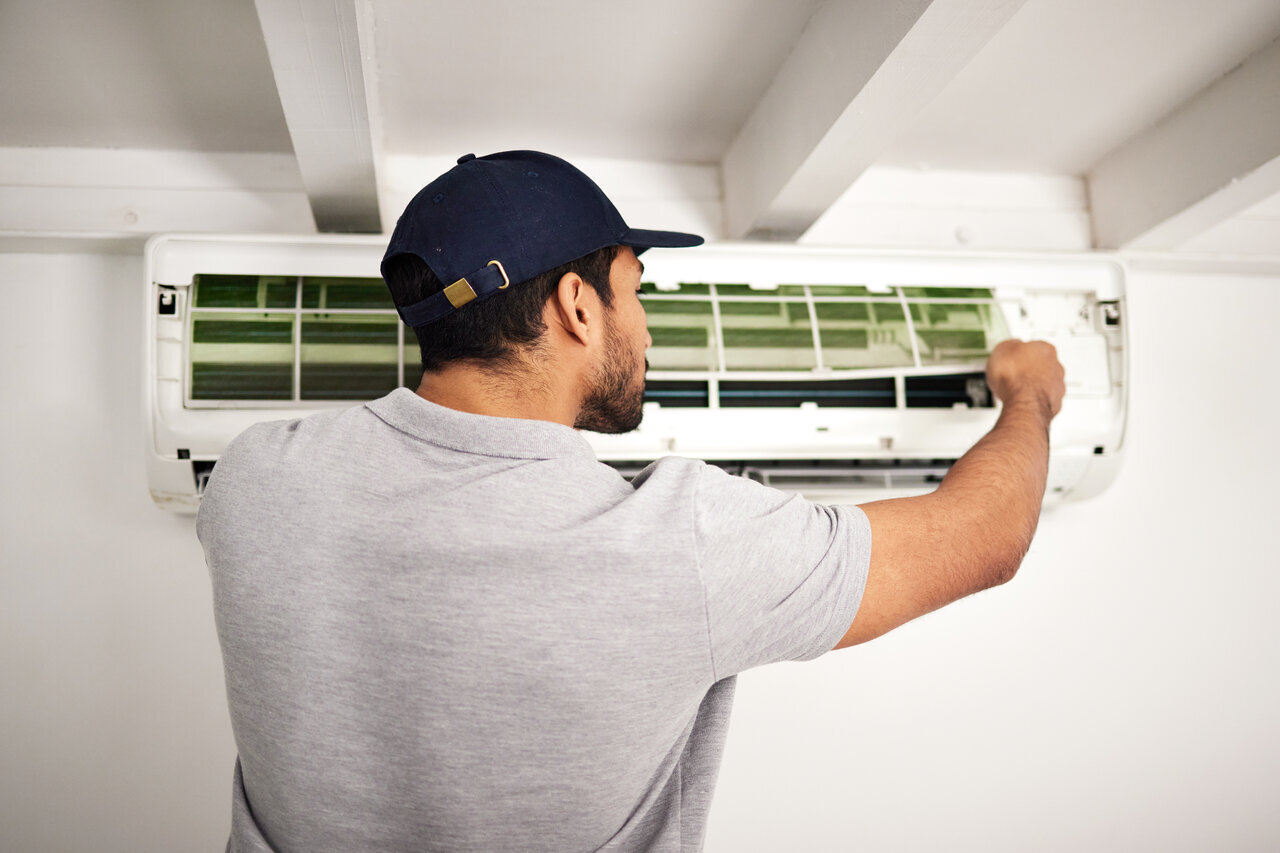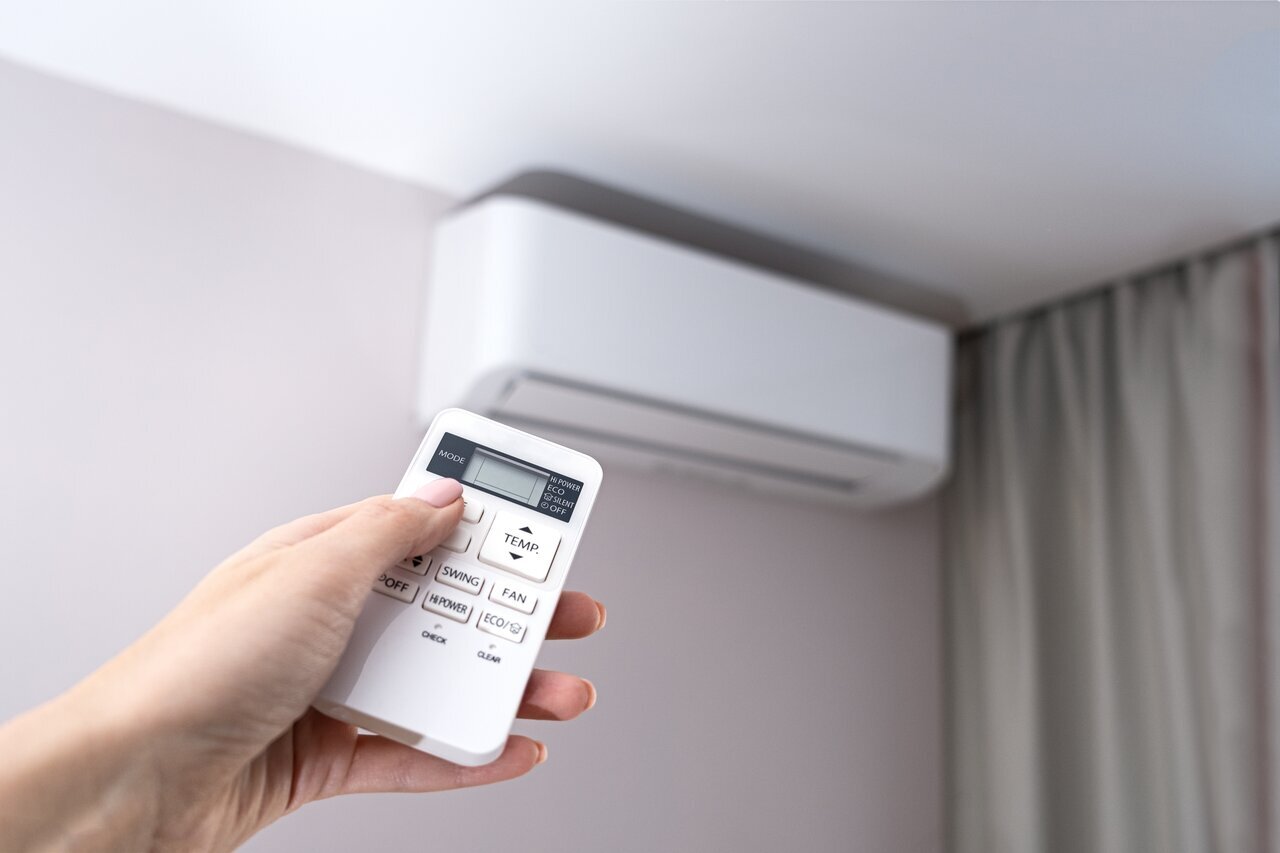What Is A Circuit Breaker?
Whether you’re a homeowner, a renter, or simply curious about the electrical systems that power our daily lives, understanding circuit breakers is essential for safety and maintenance.
You probably think they’re just a part of your house’s electrical system, and they are—but they’re more important than you might realize. They protect your home from fires and other dangers and keep your family safe.
Are you unsure how it works and whether or not it’s safe to use? Are you curious about the different types of circuit breakers that are available and how they’re used in your home?
If so, we’ve got the answers for you.
In this blog, an expert for circuit breaker services in Orange County will cover the basics of circuit breakers, explore different types, explain how they work, delve into the signs of a faulty circuit breaker, and provide maintenance tips to keep your electrical system running smoothly.
So, join us on this captivating journey through the electrifying universe of circuit breakers. It’s time to switch on your curiosity and power up your knowledge.
What is a Circuit Breaker?
Ah, the humble circuit breaker – the unsung hero of electrical safety! Picture this: You’re at home, going about your daily activities, when suddenly there’s a surge of electricity or an electrical fault. That’s where the circuit breaker swoops in to save the day!
A circuit breaker is a safety device that protects an electrical circuit from damage or severe overload. It interrupts the flow of electricity when the current exceeds a safe value, such as when a short circuit occurs or when an overload of too much power is being used.
Types of Circuit Breaker
A circuit breaker is a safety device used to protect electrical circuits from overload or short-circuit damage. Circuit breakers are available in different types, but they all work in the same way by opening and closing a circuit when an overload or short circuit occurs.
Let’s take a closer look at some of the most common types you may encounter:
- Thermal-Magnetic Circuit Breakers: These are the most common circuit breakers you’ll find in your home. They open and close based on the amount of current that passes through them. If too much current passes through a thermal-magnetic breaker, it trips and shuts off power to the circuit. These are usually found in older homes with older wiring systems.
- Ground Fault Circuit Interrupters (GFCIs): GFCIs are designed to protect against electrical shock by shutting off power when it detects an imbalance between the current flowing through the hot wire and the current flowing through a neutral wire. This can happen if there’s moisture on the ground at one end of a live wire, which causes current to flow back into the hot wire from the neutral wire, causing an imbalance and tripping the GFCI breaker.
- Arc Fault Circuit Interrupters (AFCIs): AFCIs are designed to detect and mitigate the risks associated with arc faults, which are electrical discharges that can cause fires. They monitor circuits for dangerous arcing conditions, such as damaged wires or loose connections, and instantly interrupt the circuit if such a fault is detected. AFCIs are commonly installed in bedrooms, living rooms, and other areas where fires may originate.
- Residual Current Circuit Breakers (RCCBs): Also known as residual current devices (RCDs) or residual current breakers with overcurrent protection (RCBOs), RCCBs provide protection against electrical shocks caused by ground faults or leakage currents. They monitor the difference in current between the live and neutral conductors and trip the circuit if an imbalance is detected. RCCBs are commonly used in areas where sensitive electrical equipment or personal safety is paramount.
- High-Voltage Circuit Breakers: High-Voltage Circuit Breakers (HVCBs) is a type of circuit breaker that detects overvoltages in the electrical system. They’re used to prevent equipment damage or worker injury when an overvoltage condition occurs.
- Miniature Circuit Breakers (MCBs): MCBs are compact circuit breakers typically used in low-voltage applications, such as residential and light commercial installations. They’re designed to protect electrical circuits from overloads, short circuits, and other problems that can lead to fires. They’re used in homes, offices, and other buildings.
How Does a Circuit Breaker Work?
Ah, the inner workings of a circuit breaker—a fascinating tale indeed! Picture this: You’re happily going about your day, enjoying the wonders of electricity, when suddenly there’s an overload or a fault in one of your electrical circuits. Fear not, for the circuit breaker is here to save the day!
So, how does this magical device actually work? Let’s dive into the enchanting realm of circuit breaker mechanics.
- Sensing the Trouble: The circuit breaker has an innate ability to sense when something goes awry in an electrical circuit. It’s equipped with special components that detect abnormal conditions, such as excessive current or a short circuit. These components include electromagnetic coils, bimetallic strips, and temperature sensors.
- Magnetic Fields to the Rescue: When an overload or a short circuit occurs, the current flowing through the circuit breaker increases significantly. This increase generates a strong magnetic field around the electromagnetic coils inside the breaker. The magnetic field pulls on a mechanism known as an armature or a trip unit, which initiates the trip action.
- The Thermal Element: While magnetic fields take care of sudden and drastic overcurrents, the circuit breaker also employs a thermal element to handle prolonged overloads. The thermal element consists of a bimetallic strip that bends when exposed to heat. As the current exceeds safe levels for an extended period, the strip heats up and starts to warp. Eventually, the bending becomes significant enough to trip the circuit breaker.
- Tripping the Circuit: When the magnetic fields or thermal elements detect an abnormal current condition, they trigger the trip unit, causing the circuit breaker’s internal switch to open. This action breaks the circuit, effectively interrupting the flow of electricity. Voila! The danger is stopped in its tracks, and you are shielded from electrical mishaps.
- Resetting the Breaker: After a trip event, the circuit breaker needs to be reset to restore power. This is typically done by manually switching the breaker back to its original position. However, some circuit breakers have automatic reset features that restore power after a brief delay, assuming the abnormal condition has been resolved.
Difference Between Circuit Breaker Vs. Fuse Boxes
The circuit breaker and fuse boxes are two types of protection equipment used to prevent damage in case of an electrical overload.
They are both important components of electrical systems, but they serve different purposes. To help you understand the key differences between circuit breakers and fuse boxes, here’s a handy comparison chart prepared by Orange County circuit breaker service company:
How to Tell When Your Circuit Breaker Is Bad?
Circuit breakers are a necessary part of the electrical system in your home. They protect you from dangerous electrical surges and keep your appliances from burning out.
But what happens when a circuit breaker fails? When it’s time to replace your circuit breakers, it’s important to know what to look for so you can get the job done right.
Here are some common indicators that can help you determine if your circuit breaker is experiencing issues:
- Frequent Tripping: If the breaker keeps tripping when there’s no reason for it, it may be time to replace it. If this happens repeatedly, it could mean that something else is wrong with your system (like too many appliances plugged into one outlet), but if it only happens once or twice a month, then there might be something wrong with the circuit breaker itself. To figure out which is causing the problem, try turning off all your appliances until only one remains on. If that one turns off too quickly after being turned on (or stays on longer than usual), then that appliance might be causing the problem and needs to be replaced or repaired.
- Buzzing or Humming Sounds: Another sign that your circuit breaker may need replacing is buzzing or humming sounds when the devices are turned on. This could be an indication of a loose connection inside the unit, which means it’s time for new parts!
- Overheating: When a circuit breaker is functioning correctly, it should remain at a moderate temperature. However, if you notice that the circuit breaker feels excessively hot to the touch, it could be a warning sign of an overloaded or faulty breaker. Overheating can lead to damage, tripping, or even fire hazards.
- Burn Marks or Smell: If there are burn marks or a burning smell from the circuit breaker panel, it could mean something wrong with the wiring inside. This is especially dangerous if children or pets are in the house because they could accidentally touch something hot without knowing it. Check for any other signs of smoke damage in the area where the circuit breaker was located before calling the inspection technician to check things out for you.
- Inconsistent or Flickering Power: If your power seems inconsistent—flickering on and off at random times—or if it’s not working as well as it should be, that could mean that your circuit breaker needs replacing. There could also be other issues with your wiring system (like a loose wire), so make sure to schedule an appointment with an electrician for circuit breaker services in Orange County before things get worse!
- Age and Outdated Technology: Circuit breakers, like any other electrical component, have a lifespan. If your circuit breaker is significantly old or still uses outdated technology, it may be more prone to failure or may not meet current safety standards. In such cases, considering an upgrade or replacement is advisable.
Circuit Breaker Maintenance Tips
Circuit breaker maintenance is essential for the health of your home’s electrical system. It helps ensure that your circuits are functioning properly and safely.
Following the tips below will help you keep your circuit breakers working properly for years to come:
- Circuit breakers should be tested every six months.
- Circuit breakers should be cleaned every year, but never with a vacuum cleaner or anything else that could cause arcing or damage internal parts, like a screwdriver or wire brush. You can use compressed air to blow any dust away from the breaker’s internal components, which will prevent it from building up and causing damage over time. Be sure to use filtered compressed air so you don’t contaminate your breaker with dirt or debris!
- Never try to repair a circuit breaker yourself—it’s often not worth the risk! If you suspect your circuit breaker needs replacing, call a circuit breaker replacement electrician who is certified by the National Electrical Contractors Association. They’ll know what to do!
- Never cover up your circuit breakers with paint or other materials that could prevent them from working properly in an emergency situation!
- Check the breaker. Is it tripped? If so, reset it and make sure it stays down. If not, try to determine why it wasn’t tripped by using a voltage tester to see if there’s power on the line (if there isn’t, you may have an issue with your wiring).
- Check for loose connections at the breaker box or in any of the wires coming into or out of your house. This could be because someone has been tampering with them or because something has fallen on them (like an animal).
- Look for signs of wear or damage on any of the wires in your home—this is especially important if they’re made from aluminum rather than copper because they tend to corrode more easily than their copper counterparts. If you find any damage like this, replace those wires immediately!
- Ensure that all electrical devices are properly grounded. This includes any devices that are plugged into a wall outlet or extension cord, as well as devices that connect directly to electrical outlets, such as lamps or televisions.
Call Your Orange County Electricians!
There’s no place like home.
And there’s no feeling like coming home to a place that’s safe, secure, and—best of all—up to code.
But when the wiring in your home or business isn’t up to code, it can be dangerous for you and your loved ones. That’s why Morris Air & Electric is here to help you serve with all circuits and wiring needs!
Morris Air & Electric is a family-owned business with decades of experience providing electrical services to homeowners, businesses, and developers in Orange County, Ca. Our clients know that we will always do our best to ensure their satisfaction with our work.
At Morris Air & Electric, we offer full-service electrical solutions, including:
- Circuit breaker repair
- Circuit breaker replacement
- Circuit breaker installation
- Circuits & Wiring Inspections & Repairs
- Emergency Lighting Systems
- Lighting Controls & Automation Systems
- Home Theater Lighting Design & Installation
- Home Theater Design & Installation
- 24/7 Emergency Services
- Free Estimates
- Comprehensive Inspections
- Upfront Pricing
Our experienced Orange County electricians are fully licensed and insured and will come to your home or business to inspect your electrical circuits’ wiring. They’ll know if there are problems before they become serious—saving you money on expensive repairs down the road.
At Morris Air & Electric, we take pride in our work and want to ensure your home is safe.
Call us at (833) 482-2349 if you are planning to upgrade your home’s electrical systems or need help with circuit breakers!






